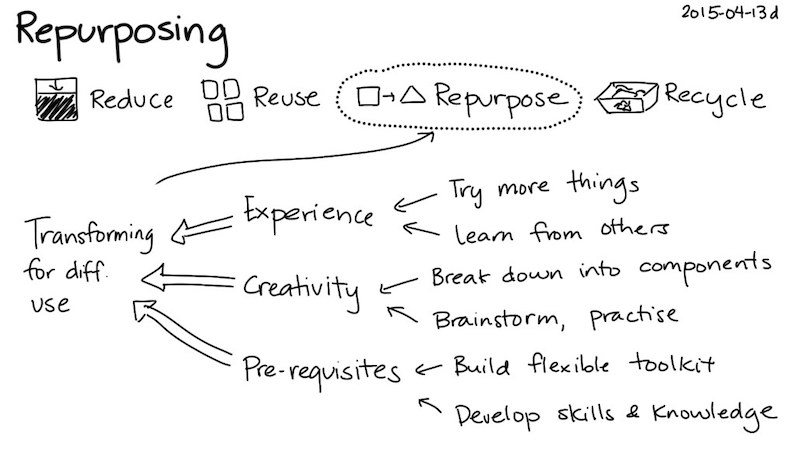The Future of eCycling
We are all familiar with the statistics on e-waste: in the USA alone we dispose of more than 30 million computers among over 50 million tons of end-of-life and obsolete electronics, every year. But that is only part of the picture: there are many alternatives to the traditional recycling methods, and these are being added to all the time.
One of the best ways of using old electronics such as cellphones, cameras, computers, printers, monitors, and game consoles, is to repair and restore them so that they can be passed on to other users. Many cities are seeing new “repair and resale” enterprises setting up, and the Internet provides a lot of information on teaching people to fix their own devices, including the website iFixIt. IFixIt provides literally thousands of guides on how to repair household items.
iFixIt points out that 20% of the materials in a cellphone are lost when it is recycled, including 99% of 17 rare earth elements. Also, making a new phone consumes the same energy as 1,150 60-watt light bulbs for one hour and that energy is wasted when the device is destroyed. If the phone can be repaired it benefits the users as well as the environment.
Right to Repair
Worldwide, the trend towards fixing one’s own devices is supported by the “right to repair” movement, but in the USA legislation is slow to move through many of the states due to opposition from manufacturers. The right to repair for electronic devices has four major components:
1. The device should be constructed and designed in a manner that allows repairs to be made easily;
2. End users and independent repair providers should be able to access original spare parts and tools (software as well as physical tools) needed to repair the device at fair market conditions;
3. Repairs should be possible by design and not hindered by software programming;
4. The repairability of a device should be clearly communicated by the manufacturer.
Source: Wikipedia
As industries and manufacturers adapt to meeting the requirements for the right to repair, the volume of electronics being destroyed as e-waste will inevitably decline.
Future Moves — The Five Rs
In parallel with the right to repair movement, there is increasing focus on reducing waste by educating manufacturers on what is referred to as the “five Rs.”
These are:
- Refuse
- Reduce
- Reuse
- Repurpose
- Recycle
These principles apply to waste management in general, not just electronics.
Refuse
This element reduces waste by refusing to include certain items in the manufacturing process, for example, eliminating single-use plastics and non-recyclable products. It is clearly easier to reduce waste by not generating it than by trying to find ways to dispose of it in an environmentally responsible way, later.
Reduce
This step is similar to the first but accepts that there may be some components of the supply process that cannot be eliminated completely so the next best option is to reduce the amount of wasteful, non-recyclable materials being used.
Reuse
The meaning of “reuse” is obvious but it needs diligent management to make sure that all options for reusing materials are being considered. Too often businesses have got into the habit of throwing away recyclable material without first thinking about how it could be reused.
Repurpose
This is often referred to as “upcycling” and means taking items that were meant for one purpose and using them for others. Again, opportunities for this abound in most businesses, but just require some thought as to how repurposing can be accomplished.
Recycle
Finally, if all the other steps have been considered recycling is the final option. The most important factor at this stage is to ensure that the recycling center being used is environmentally responsible (not all of them are!) and that the amount of residual waste going to a landfill is minimized.
The future of ecycling will involve all of the factors mentioned here, as well as looking to more innovative ideas that are being developed.
For electronics disposal, Potomac eCycle works to the highest standards in the industry and is accredited accordingly. Contact us for more details.


Recent Comments